Research into the Mechanism behind Occurrence of Mega-quakes
Concentrating Wisdom to Confront Near-unprecedented “Mega quakes”
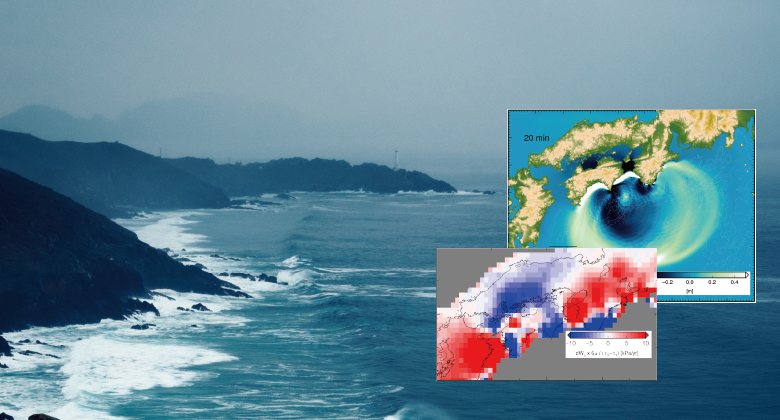
While mega quakes such as the Nankai Trough megathrust cause enormous damage, the frequency of their occurrence is extremely low anywhere in the world, and it is very difficult to envision what form these quakes will take based only on experience. In addition to various types of observation data, we extensively use indoor experiments and large-scale simulations to clarify the mechanism behind the occurrence of mega quakes and develop scenarios for mega quakes that are likely to occur in future.
Fundamental research regarding earthquakes
-
Research on places where earthquakes occur
Earthquakes occur when accumulated strain within the earth is released. By investigating deformation in the earth’s surface using GNSS (Global Navigation Satellite System) observation, we can estimate where strain is accumulating and to what degree.
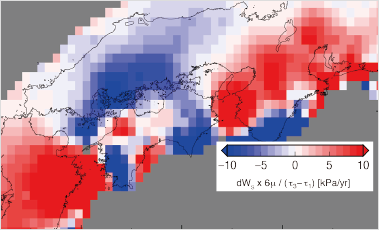
Distribution of strain along Nankai Trough (10km depth) -
Experimental research regarding basic principles of destruction
It is very problematic to directly survey earthquake phenomena in the locations where earthquakes actually occur. Given this, we use special experimental devices to conduct in door experiments that simulate earthquakes and accumulate data.
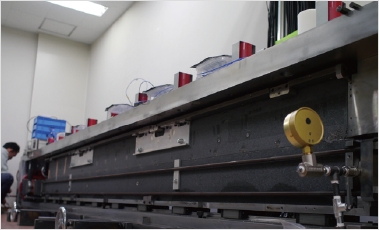
4m long rock friction experimental device -
Research on mega quakes occurring overseas
As observation data for mega quakes with low frequency occurrence is insufficient, we look to other countries to accumulate observation data for mega quakes that have occurred around the world and are constructing database.
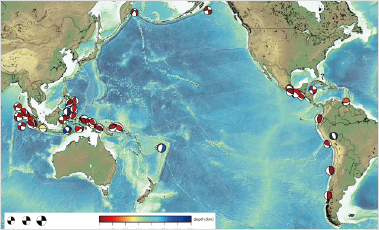
Mega quakes that have occurred in the Pacific Rim
Integrated research to elucidate the true picture of major earthquakes
Running large-scale simulations to develop scenarios for the occurrence of mega quakes
Integrating results and knowledge derived from fundamental research, we use large-scale simulations to recreate a computational simulation for the occurrence of mega quakes. Giving consideration to various conditions behind the occurrence of mega quakes; we develop scenarios for their occurrence.
-
Example of simulation of Nankai Trough mega quake
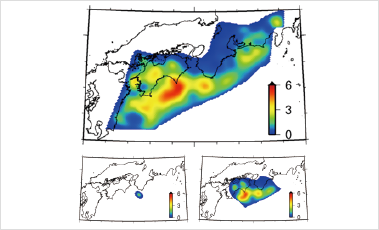
-
Example of simulation of tsunami triggered by a mega quake
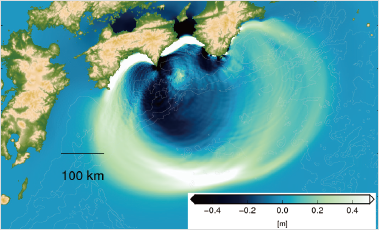
TOPICSLarge-scale rock friction experiment to shed light on true nature of earthquake occurrence
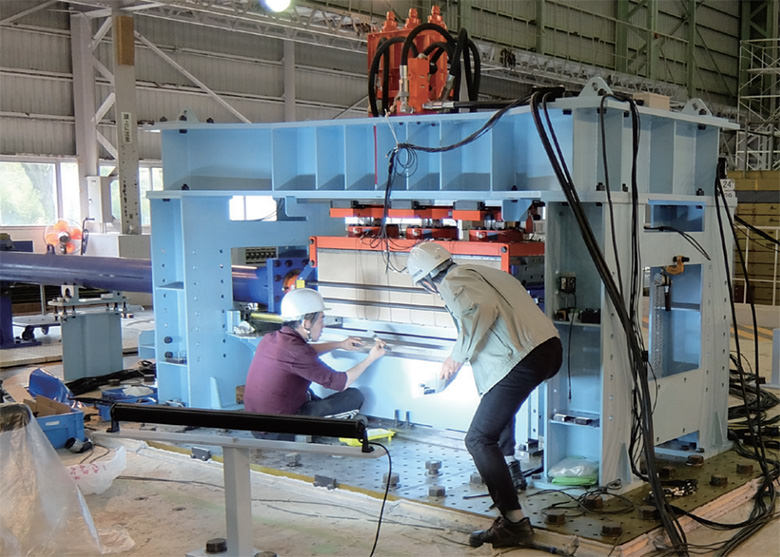
Usually, for experiments to investigate rock friction that acts on the faults during earthquakes, pebbles were mainly used as the specimen. This project made use of the shaking table at NIED’s Large-scale Earthquake Simulator to conduct an experiment using rocks with a length of 1.5 meters. By running an experiment that shakes rocks at 1m/second, which is close to the slip speed of faults in actual earthquakes, we can obtain knowledge and findings regarding the fundamental laws of earthquake destruction.
